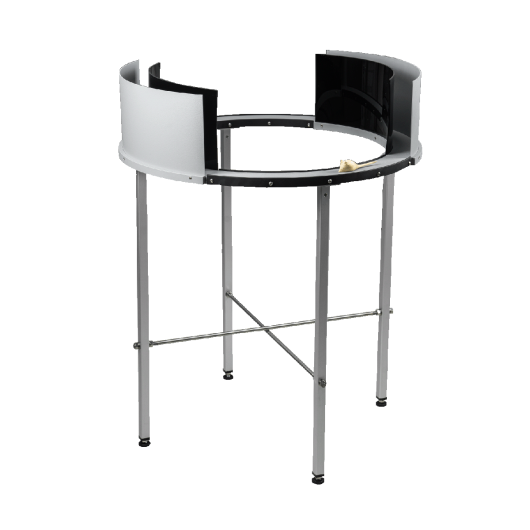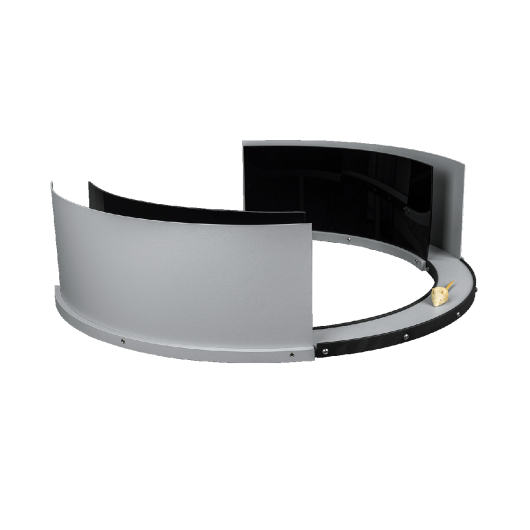


Elevated Zero-Maze (EZM) for rats or mice, optimized for Videotracking
Features
- High-contrast colors
- Non-reflecting surface
- Ample color selection
- Reasonably rough “warm” surface texture
- Quality materials
Benefits
- Gives optimal results with any Video-Tracking software
- Guarantees optimal camera view and no glare
- Available in grey (standard), blue, white, black, custom color
- Selected for best rodent comfort, non-slippery
- Reliable and durable mazes, easy to clean and store
Application
Elevated zero maze is a modification of the elevated plus maze model of anxiety in rodents, which incorporates both traditional and novel ethological measures in the analysis of drug effects.
The elevated zero-maze constitutes a modification in both design and procedure which aims to improve upon the traditional model by increasing the sensitivity to, and facilitating interpretation of, drug action.
The novel design comprises an elevated annular platform with two opposite, enclosed quadrants and two open quadrants, addresses one potentially problematic issue inherent in the plus-maze design, i.e., the unavoidable ambiguity associated with time spent on the central square, removing any ambiguity in the interpretation and allowing uninterrupted exploration.
The Zero-Maze design, combined with a detailed behavioral analysis, represents a reliable animal model of anxiety.
Method paper
- J.K. Shepherd et alia: “Behavioral and Pharmacological Characterisation of the elevated “Zero-Maze” as an Animal Model of Anxiety” Psychopharmacology 116: 56-64, 1994
- K.B. Troelsen et alia: “Chronic treatment with duloxetine is necessary for an anxiolytic-like response in the mouse zero maze: the role of the serotonin transporter” Psychopharmacology 181(4): 741-750, 2005






